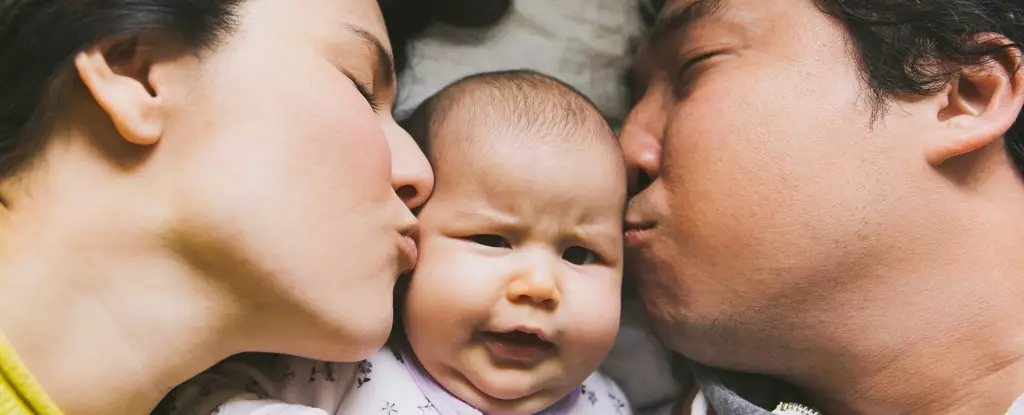The phenomenon known as the “curse of knowledge” can often obscure essential information from those who may desperately need it. This cognitive bias occurs when an individual, possessing expertise or extensive knowledge in a particular field, mistakenly believes that their information is common knowledge. In a healthcare context, this bias is particularly dangerous, especially when guardians and caregivers overlook critical insights regarding newborn health and safety. Often, we perceive established facts about the vulnerabilities of infants as intuitive, failing to communicate these awarenesses effectively to others.
One of the primary reasons why kissing newborns can be perilous lies in their immature immune systems. At birth, babies are defenseless against various infections due to an underdeveloped array of immune cells. Unlike adults, who possess a robust defense mechanism against many pathogens, newborns have fewer neutrophils and monocytes, making them more susceptible to severe infections. For instance, while a simple cold sore may be a trivial issue for adults, the herpes virus it harbors can be catastrophic for a newborn. The potential for a seemingly benign act of affection to precipitate a life-threatening ailment underscores the critical need for increased awareness surrounding infant health.
The herpes simplex virus serves as a pertinent example when discussing the risks posed to newborns. While adults may experience only mild symptoms like cold sores, the ramifications for infants are significantly more dire. If transmitted, this virus can not only affect superficial areas like the skin and mouth but can also infiltrate vital organs, resulting in severe complications or even fatality. Newborns, particularly during their first month, face the highest risk, making careful consideration of hygiene and exposure vital.
Additionally, the danger does not exclusively stem from herpes. Other infections, such as those caused by group B streptococci and pathogenic strains of E. coli, are also significant threats. These bacteria can thrive in adults without causing illness but can prove deadly for infants. Conditions like meningitis, sepsis, and pneumonia are all potential outcomes of exposure to these pathogens, emphasizing the critical importance of protective measures.
Parents navigating the complexities of newborn health should feel empowered to set boundaries for visitors. The knowledge that family and friends may inadvertently pose risks should not be a source of discomfort or embarrassment for caregivers. Instead, parents must assert their authority in safeguarding their child’s health. Asking visitors to refrain from kissing or close contact is not an overreaction; it is a responsible approach to the well-being of the infant.
Visiting protocols should prioritize the baby’s safety, and loved ones should respect these measures without offense. Real care for a newborn is demonstrated through the assumption of responsibility regarding infections. Open dialogue about the risks associated with kissing and touching is essential for fostering understanding and awareness among the community.
In circumstances where kissing a newborn is deemed unavoidable—be it due to cultural practices or personal connection—certain precautions can significantly reduce the risk of disease transmission. Hand hygiene is paramount; thorough handwashing before contact is a fundamental step in ensuring the infant’s safety. Additionally, avoiding facial contact can mitigate risks, underscoring a preference for alternative areas, like the foot or back of the head, to bestow affection.
Moreover, anyone exhibiting active infections, be it respiratory or otherwise, should evaluate the necessity of visiting a vulnerable infant. In cases where a visit is vital, wearing a mask and maintaining distance is recommended to deter the transmission of pathogens. It is a delicate balance of expressing affection while prioritizing safety.
Kissing newborns, while seen as a universal gesture of love and connection, carries hidden dangers that many people overlook due to the curse of knowledge. The underdeveloped immune system of infants makes them exceedingly vulnerable to infections that could result from seemingly innocent acts of affection. Therefore, it is crucial for caregivers and loved ones alike to adopt a preventive mindset, cultivating an environment that emphasizes health and safety over traditional practices. With proper awareness and proactive measures, we can ensure that our gestures of love do not inadvertently jeopardize the health and well-being of our precious newborns.

